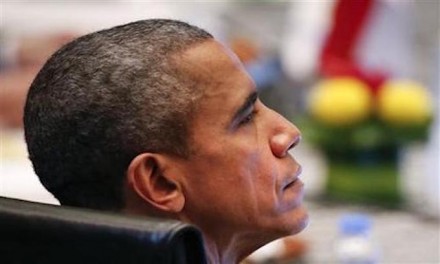In the Trump era, buttoned-down, straight-laced conservatism is widely seen to have been replaced by wild-eyed, open-throated populism. Yet Trump has worked closely with Congress to deliver economic policies that big-business Republicans have wanted for decades. In a strange and important way, however, those gains aren’t translating to political support. Wall Street is going blue — and making a big mistake.
At first blush, the statistics are surprising. New data from the Center for Responsive Politics shows that, for the first time since Barack Obama was elected, America’s financial community is poised to dish out more cash to Democrats than Republicans. Given the way grassroots Democrats rail against corporate America, it’s especially odd to see boardrooms sour on Republicans.
Culturally, however, Wall Streeters have their reasons. On policy, they tend to talk a big game about the dangers of Trump’s trade wars or the economic risks he runs by poor-mouthing the EU or rattling sabers in the Mideast and Asia.
But it’s domestic considerations that are likely deepening their hue of blue. The “boardroom liberalism” that grew up in the Obama years has kept right on going. More than ever, financial elites either embrace identity politics and progressive moralism out of principle or out of pragmatism.
These days, the only sure-fire way to deflect populist backlash against “plutocrats” and “the 99 percent” is by making a huge show of one’s personal or institutional “wokeness,” spending big on progressive-approved causes, conspicuously advertising to groups with lots of political capital in liberal politics, and, well, giving money directly to incumbent Democrats and Democratic challengers.
The epitome of this turn of events is Michael Bloomberg, who recently re-registered as a Democrat. He understands as well as anyone that, today, there are no lead roles reserved in American politics for people in the mushy middle. If you’re a wealthy member of the elite, the fact is you face tremendous pressure, inside and out, to pledge your allegiance to the ideology of the Left.
Nevertheless, if Wall Street thinks they can come out on top by aligning against Republicans, they’re in for a harsh lesson. For one, California politics has starkly shown how the combination of big money and radical politics produces a huge backlash, not to mention a big raft of costly and ineffective policies that end up increasing inequality.
Turning the country into California in that respect might be a progressive dream, but it will only alienate, outrage, and mobilize more and more Americans against the financial elite.
Some Wall Streeters might think they’ve got a more clever rationale. Perhaps they could help move the Democrats to the center, staking out ground for a new moderate majority that sees big money as a big ballast for responsible governance. It’s a nice thought, but it’s irresponsibly off-base. The Obama years plainly showed that the progressive culture warriors who have captured the Democrats’ agenda have no interest in being turned into squishy moderates. Certainly the wealthiest progressives, in Hollywood, Silicon Valley, and beyond, feel this way.
For big finance, the best way to curb populist excess isn’t to be found in throwing its weight behind party ideologues Left or Right. It might feel scary to risk the wrath of the progressives, but the real danger will come from losing even more support on Main Street.
___
(c)2018 The Orange County Register (Santa Ana, Calif.)
Visit The Orange County Register (Santa Ana, Calif.) at www.ocregister.com
Distributed by Tribune Content Agency, LLC.
—-
This content is published through a licensing agreement with Acquire Media using its NewsEdge technology.


















Recent Comments